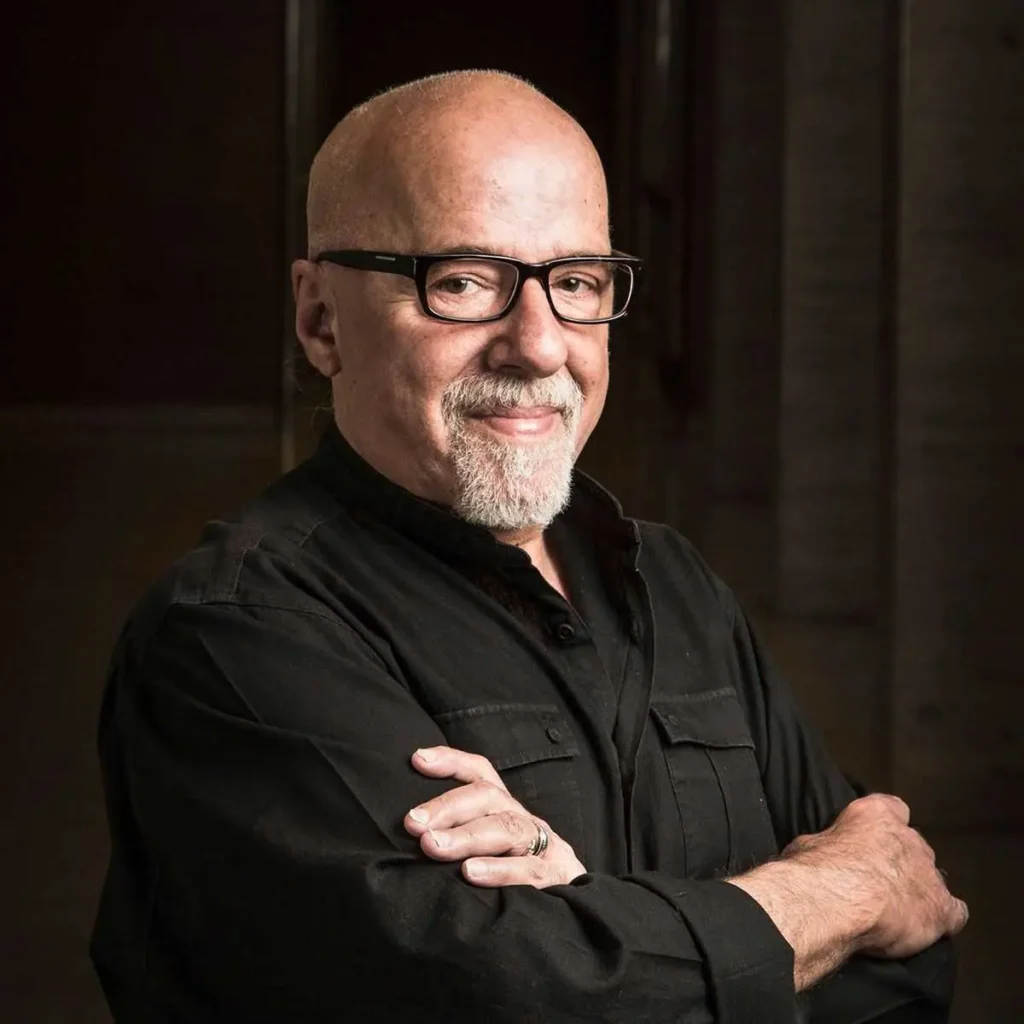Happy birthday, Paulo Coelho! Today, we celebrate 78 years of the legendary author behind ‘The Alchemist’ and the timeless wisdom he’s shared with us.
Back in 1993, The Alchemist was first translated into English and took the literary world by storm. Of course, this should have been no surprise – The Alchemist had already been released five years earlier, as the Portuguese title O Alquimista. Though many readers were discovering The Alchemist’s author, Paulo Coelho, for the first time, his genius was already long-established.
Fast forward more than thirty years, and that genius has been fully cemented into the heart of the global literary landscape. As Coelho celebrates his 78th birthday, we take the time to reflect on his life, his work, and the qualities that have made him one of the world’s best-loved authors.
The Alchemist / Alquimista
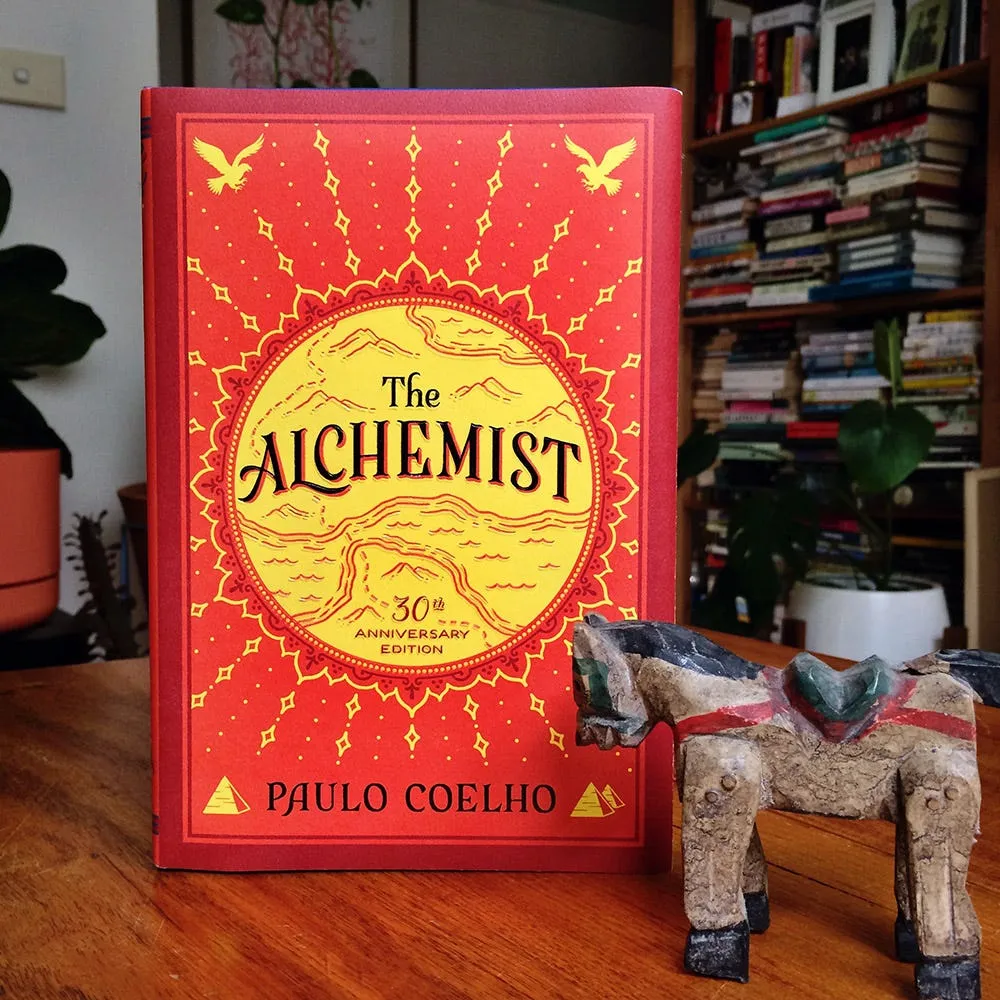
The Alchemist was first published in Portuguese in 1988. Despite being a relatively thin volume, the book manages to pack a lot into a couple of hundred pages, taking readers on an epic journey in the company of an Andalusian shepherd boy by the name of Santiago.
While the novel is set at some time during the early modern period, its themes of ambition, destiny, striving, and personal development are largely universal.
The often mystical backdrops paint a vivid picture for the reader, but it is the far-reaching implications of the work that have made it a modern classic.
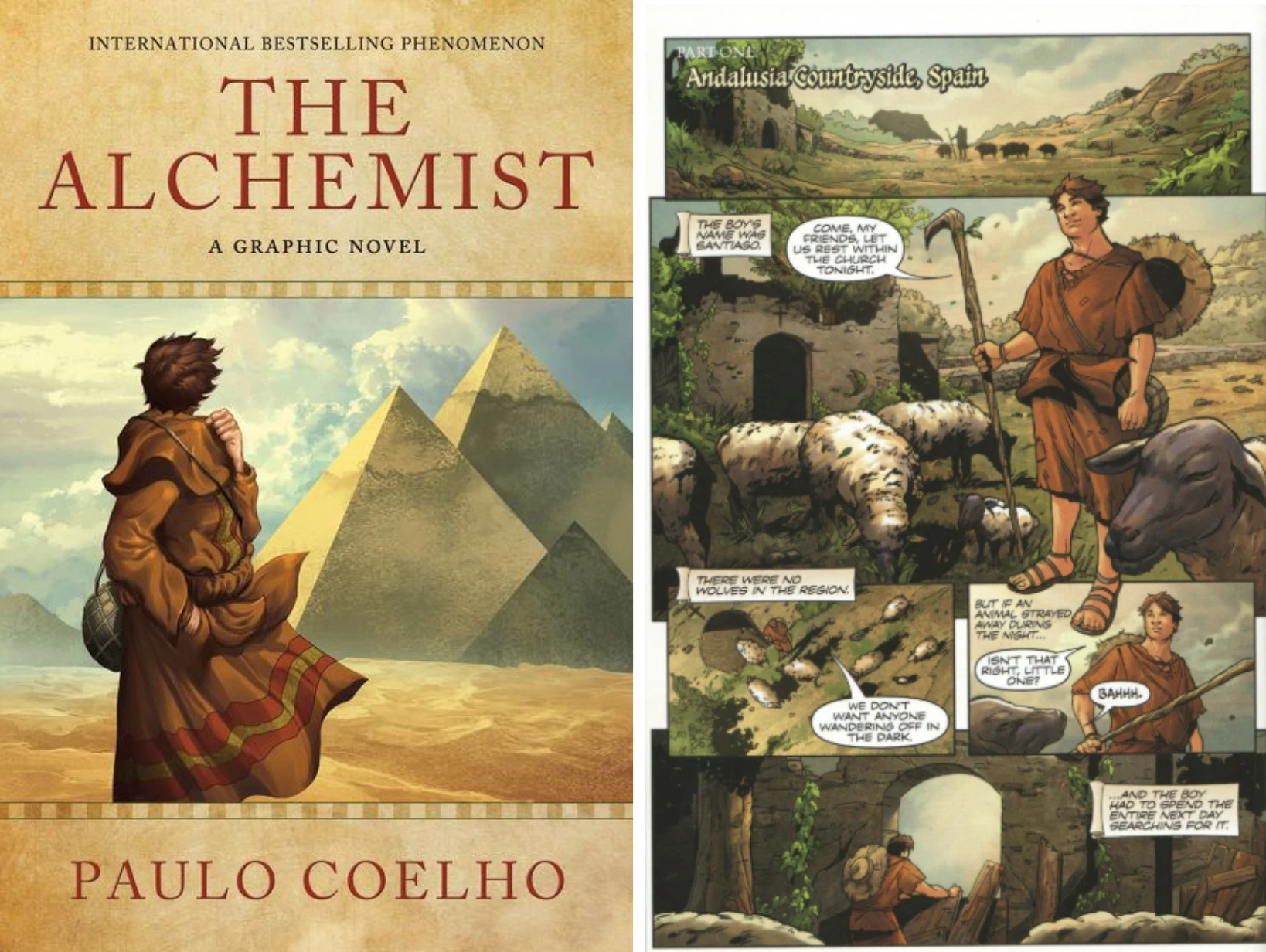
Since then, Paulo Coelho has developed a reputation as one of the world’s top novelists. His work has been translated into many different languages, and adapted into a plethora of different media – from comic books and graphic novels, through to movies, stage plays, and even a collection of indie rock songs.
The Writer’s Background
But The Alchemist didn’t just fall out of the sky. It wasn’t even Paulo Coelho’s debut novel. He’d already published The Pilgrimage, or O Diário de Um Mago (Diary of a Magus), released in 1987. This fictionalized account of Coelho’s own experiences on the Camino de Santiago, a pilgrimage route culminating at Santiago de Compostela in northwestern Spain.
This debut work laid much of the groundwork for the thematic elements that would follow in his later writing.
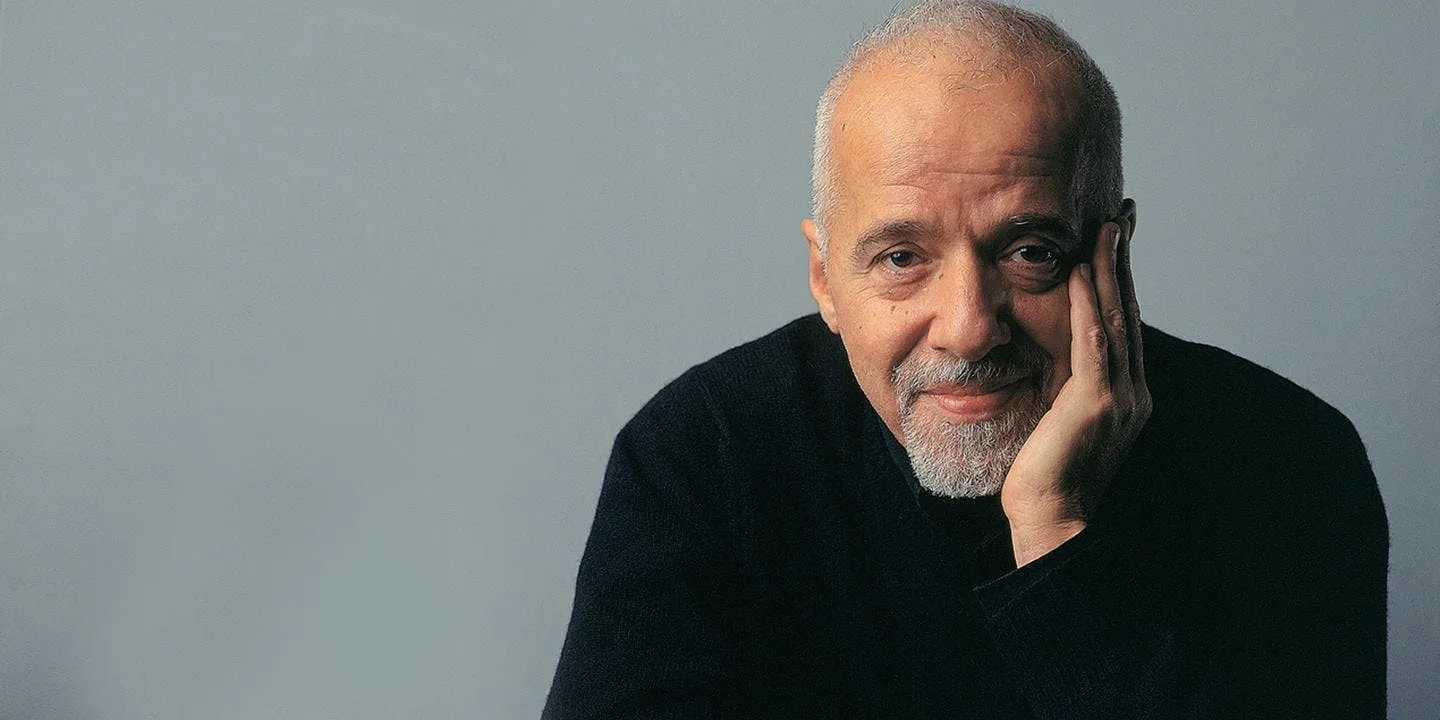
The themes of self-discovery, pre-determination, and philosophical and spiritual quests are abundant here and emerge repeatedly across Coelho’s work. The roots of this work stretch back to Coelho’s birth in Rio de Janeiro, Brazil, in 1947. From an early age, young Paulo encountered struggles, and his parents even had him institutionalized at age 17.
Three years and three escape attempts later, he was released, but this experience had a profound effect on him.
A Number of Different Careers
Coelho initially tried to keep his parents happy, studying towards a law degree and forgetting all about being a writer. However, he found the rigid constraints of the legal profession difficult to deal with. After dropping out, he took up a bohemian lifestyle and began traveling around the Americas, North Africa, and Europe during the hippy era of the 1960s.
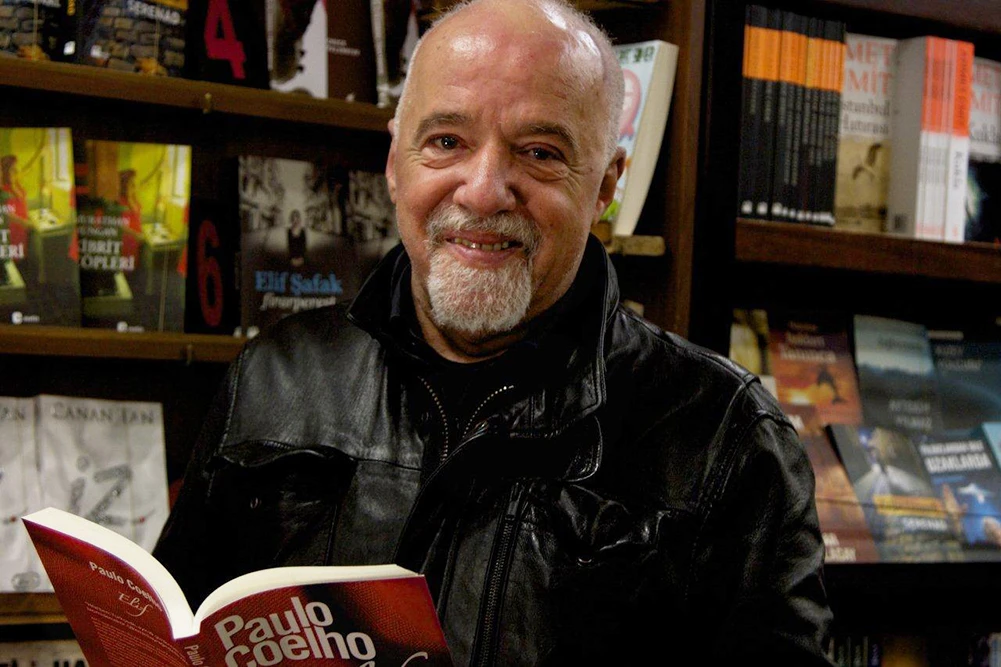
This time spent travelling the world gave Coelho a rejuvenated creative spark. On his return to his native Brazil, he became a songwriter, and this is where things start to get really interesting, and not a little disturbing.
Firstly, rumours began to circulate about Coelho’s interest in the occult, spurred on by the lyrical content of some of the songs he was writing. But when Brazil’s military dictatorship began to take an interest in Coelho’s work, it wasn’t because of the supernatural overtones – it was due to their apparent politics.

In 1974, he was arrested by the authorities and questioned over his apparent subversive and left-wing lyrics. Coelho even alleges he was tortured by the government before eventually being released.
Paulo had certainly had his fair share of adventures, but by the 1980s, he was feeling dissatisfied. He’d always dreamed of being a novelist, and he’d not yet made that happen. After a couple of failed projects, he decided to make the journey to Santiago de Compostela. The Pilgrimage was born, and the rest is history.
Creating a Lasting Legacy with Writing
Once The Alchemist was published, there was no looking back. Throughout the 1990s, Coelho was highly prolific, publishing ten books across the decade. He continued that form in the new millennium, with 13 books between 2000 and 2010, including three in a single year in 2004.
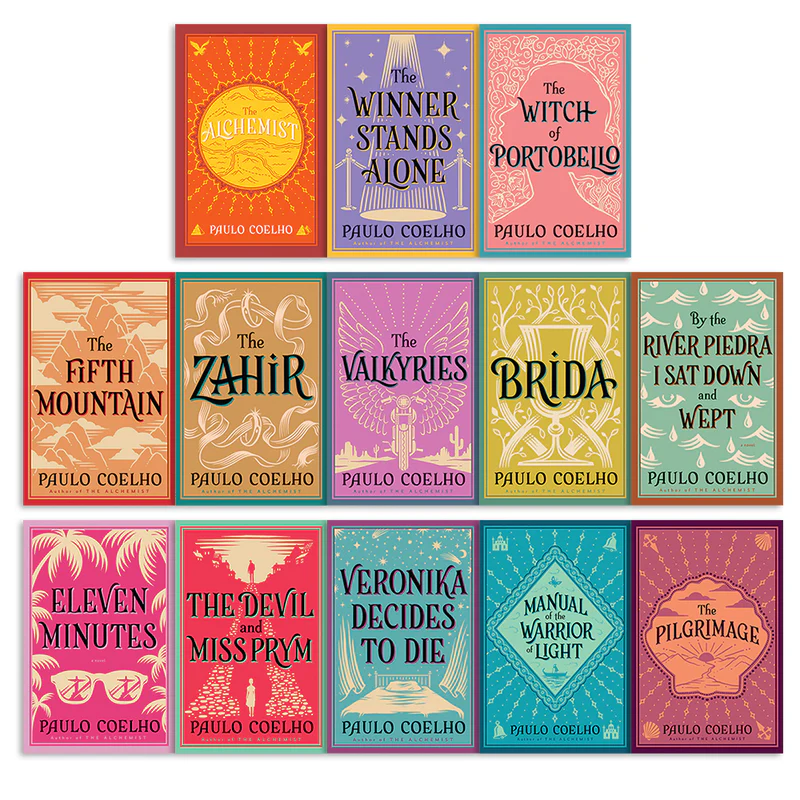
But Paulo’s career is about quality rather than quantity. His work has dazzled and delighted audiences of all ages for almost 40 years. While he hasn’t published a book since 2020, it’s possible that his career has still not reached its conclusion. He’s only 78 after all, a relatively sprightly age for a writer.
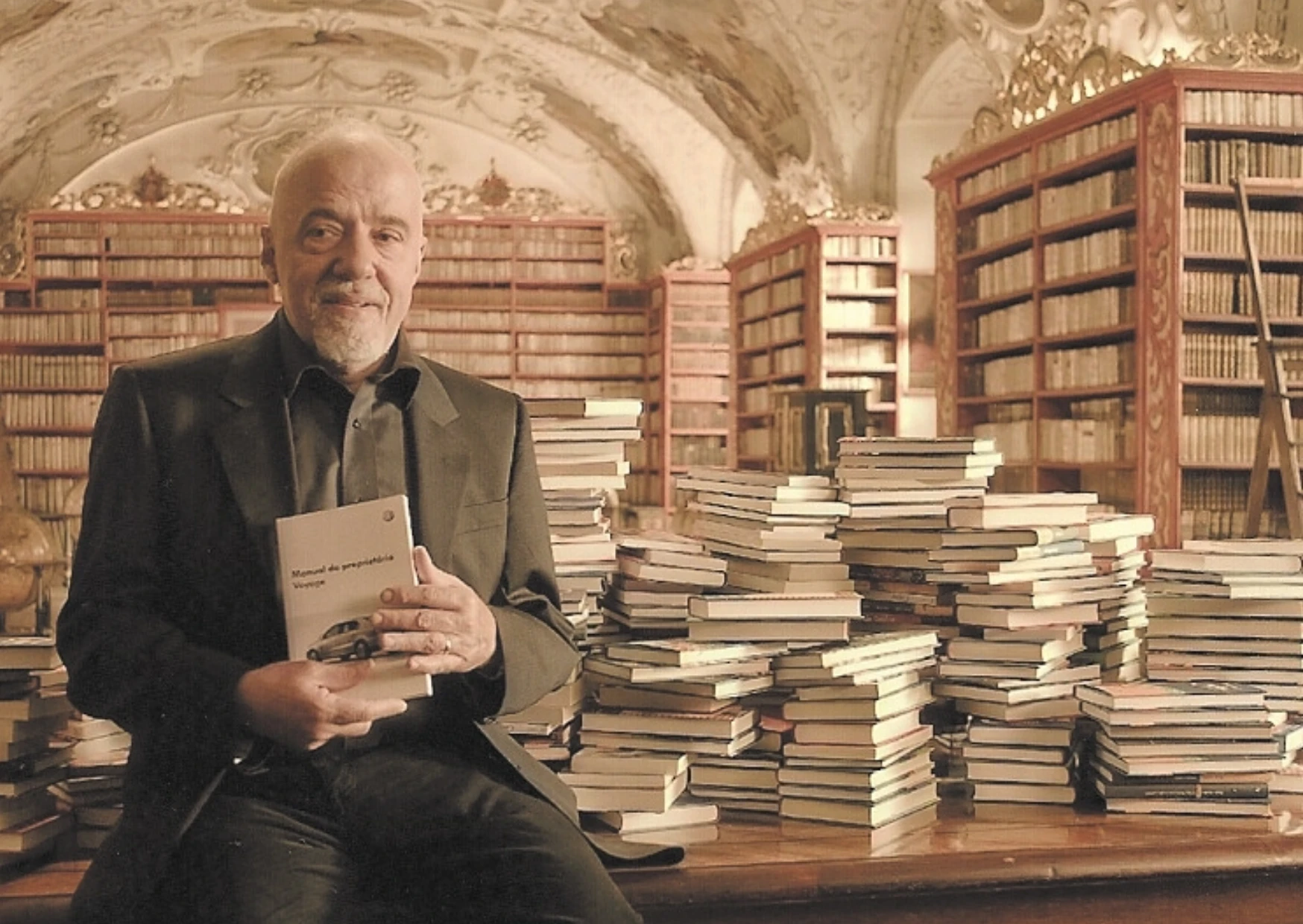
Whether or not we see another Paulo Coelho novel, it largely doesn’t matter. He’s already provided us with a stunning body of work, and for that, we must say thank you… And happy birthday!
Join our community of 1.5M readers
Like this story? You'll love our free weekly magazine.





